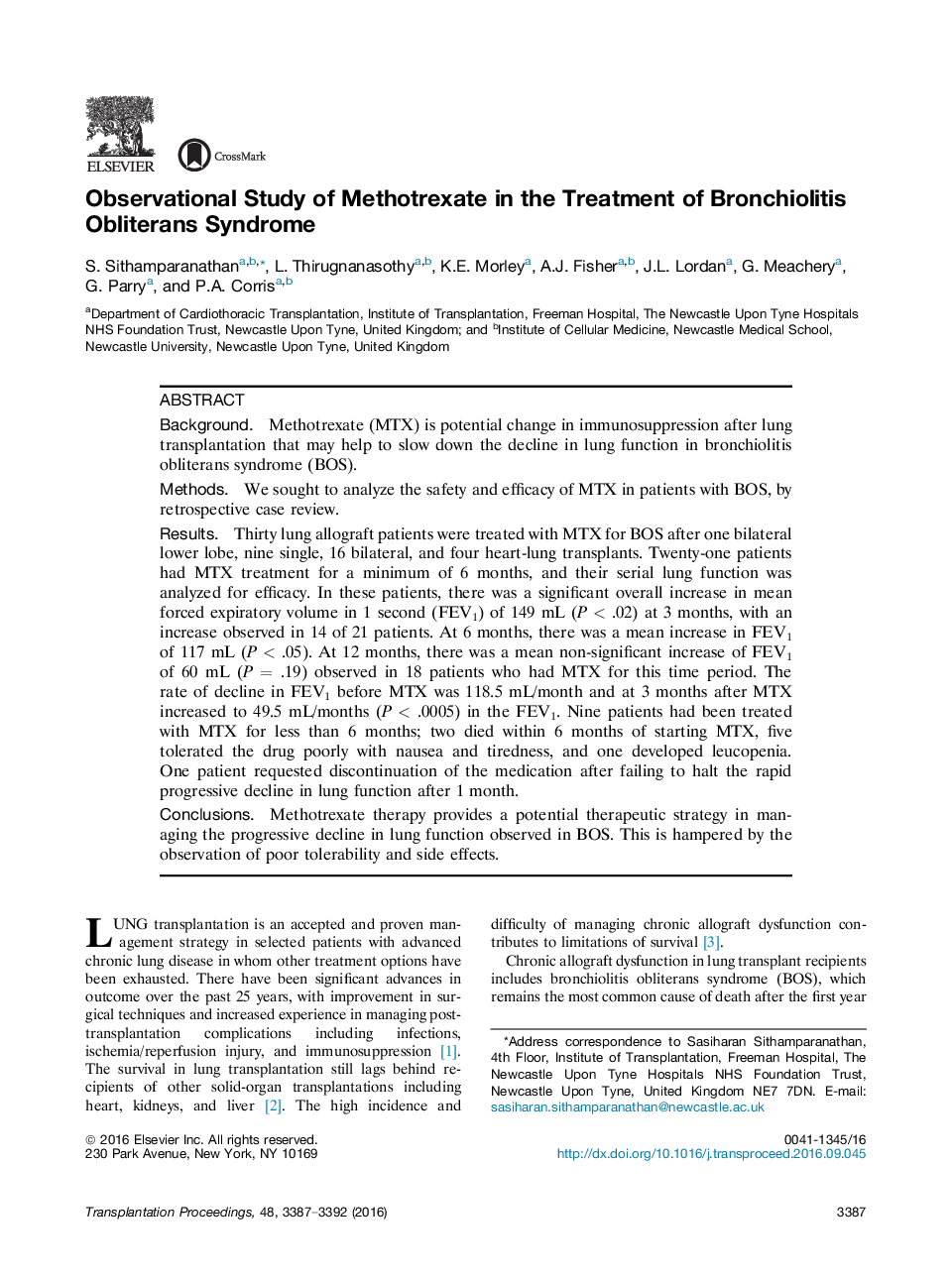| Article ID | Journal | Published Year | Pages | File Type |
|---|---|---|---|---|
| 5729100 | Transplantation Proceedings | 2016 | 6 Pages |
â¢Observational safety and efficacy of methotrexate in the treatment of BOS in lung transplantation was assessed.â¢Switching to methotrexate resulted in stabilization and in some cases improvement in FEV1 at 3 and 6 months.â¢Observed poor tolerance and adverse effects hamper long-term use.â¢Methotrexate is a potential therapeutic agent in the management of BOS in lung transplantation and warrants further research.
BackgroundMethotrexate (MTX) is potential change in immunosuppression after lung transplantation that may help to slow down the decline in lung function in bronchiolitis obliterans syndrome (BOS).MethodsWe sought to analyze the safety and efficacy of MTX in patients with BOS, by retrospective case review.ResultsThirty lung allograft patients were treated with MTX for BOS after one bilateral lower lobe, nine single, 16 bilateral, and four heart-lung transplants. Twenty-one patients had MTX treatment for a minimum of 6 months, and their serial lung function was analyzed for efficacy. In these patients, there was a significant overall increase in mean forced expiratory volume in 1 second (FEV1) of 149 mL (P < .02) at 3 months, with an increase observed in 14 of 21 patients. At 6 months, there was a mean increase in FEV1 of 117 mL (P < .05). At 12 months, there was a mean non-significant increase of FEV1 of 60 mL (P = .19) observed in 18 patients who had MTX for this time period. The rate of decline in FEV1 before MTX was 118.5 mL/month and at 3 months after MTX increased to 49.5 mL/months (P < .0005) in the FEV1. Nine patients had been treated with MTX for less than 6 months; two died within 6 months of starting MTX, five tolerated the drug poorly with nausea and tiredness, and one developed leucopenia. One patient requested discontinuation of the medication after failing to halt the rapid progressive decline in lung function after 1 month.ConclusionsMethotrexate therapy provides a potential therapeutic strategy in managing the progressive decline in lung function observed in BOS. This is hampered by the observation of poor tolerability and side effects.
